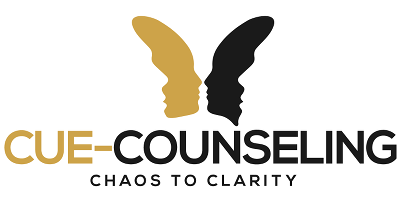How to Spot a Toxic Friendship (And What Healthy Relationships Really Look Like)
Learn to Recognize Red Flags, Set Boundaries, and Surround Yourself with People Who Help You Grow
There’s a saying: “You become the average of the five people you spend the most time with.” That may be an exaggeration, but it’s rooted in truth—your friendships shape your mindset, energy, and personal growth.
Just as our bodies are affected by what we eat, our minds are influenced by the people around us. That’s why it’s crucial to evaluate the health of your social circle and spot signs of toxic friendship before it weighs you down.
What Is a Toxic Friendship?
A toxic friendship is one that consistently drains your energy, disrespects your boundaries, undermines your growth, or contributes to emotional distress. These relationships often bring short bursts of fun but come with long-term consequences like anxiety, resentment, or self-doubt.
Healthy friendships, on the other hand, are rooted in mutual respect, emotional support, and care—even when life gets hard.
Let’s break down the key signs of toxic vs. healthy friendships.
1. Boundaries: The Foundation of Respect
Healthy friendships respect boundaries. Toxic ones push past them.
If something makes you uncomfortable, you have the right to express it. A quality friend will accept that—even if they don’t understand it. They know that respecting your comfort is a sign of love and maturity.
🚩 Toxic Friends May:
-
Dismiss or mock your boundaries
-
Manipulate you into feeling guilty for asserting your needs
-
Say things like: “Why does that matter to you?” or “You’re overreacting”
✅ Healthy Friends Will:
-
Listen and respond with empathy
-
Avoid crossing lines that make you feel disrespected
-
Accept your needs as valid—even if they’re different from their own
Pro Tip: Failing to assert boundaries can lead to resentment, which slowly erodes even the best-intentioned relationships.
2. Support Through Success and Failure
Success and failure reveal who truly supports you.
Toxic friends may belittle your wins or act threatened by your growth. They may feel left behind or guilty for not pursuing their own goals and lash out by minimizing your achievements.
🚩 Toxic Friends May:
-
Downplay your success with “don’t get too full of yourself” comments
-
One-up you with their own stories
-
Make you feel like you’ve betrayed the group by growing
✅ Healthy Friends Will:
-
Celebrate your success as if it’s their own
-
Cheer you on and feel inspired, not threatened
-
Remind you of your worth during failure and setbacks
True friends don’t compete—they grow together.
3. Listening, Caring, and Emotional Availability
Feeling heard is one of the most powerful emotional experiences. Great friendships involve deep listening and genuine interest in one another’s lives.
🚩 Toxic Friends May:
-
Talk over you or change the subject when you speak
-
Show no real curiosity about your goals or challenges
-
Use your friendship for entertainment or social leverage
✅ Healthy Friends Will:
-
Ask how you’re doing—and listen without judgment
-
Make time for your highs and lows
-
Show consistent emotional support when you’re struggling
4. The Trap of Toxic Relationships: Why They’re Hard to Leave
Toxic friendships are often confusing because they’re not always bad. You might share laughs, good memories, or emotional closeness with someone who also regularly hurts or disrespects you.
That ambiguity makes it harder to walk away—but patterns don’t lie.
If a person consistently:
-
Violates your boundaries
-
Undermines your growth
-
Drains you emotionally
…it’s time to reevaluate.
You can love someone and still need to love yourself more.
How to Build and Attract Healthy Friendships
The best way to cultivate high-quality relationships is to embody the traits of a great friend yourself. Lead with:
-
Honesty
-
Empathy
-
Boundaries
-
Encouragement
-
Active listening
When you model what healthy friendship looks like, you attract others who do the same—and repel those who don’t.
Final Thoughts: Don’t Settle for Less Than You Deserve
If you’re asking yourself whether your friendships are toxic, that’s already a sign of self-awareness—and strength.
Ask yourself:
-
Do my friends respect my boundaries?
-
Do they celebrate my growth or feel threatened by it?
-
Are they there for me during setbacks, not just the good times?
-
Do they listen when I speak and show they care?
Surround yourself with people who support your evolution—not those who are threatened by it. You deserve friendships that uplift you, not ones that drain you.
